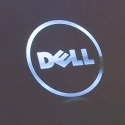
Dell, the world's third-largest PC vendor, said it would sell a laptop sporting 5G connectivity. The news serves to highlight the potential of 5G infiltrating into other devices beyond smartphones.
Dell announced its new Latitude 9510 just ahead of the upcoming CES trade show in Las Vegas, which is essentially ground zero for the consumer electronics industry. Dell said the laptop sports a "5G-ready design" alongside 30 hours of battery power, WiFi 6 capability and Intel's Core i7 processors.
"The design incorporates 5G antennas into the speakers to retain the InfinityEdge display," the company added.
Dell confirmed that Qualcomm is the vendor for the laptop's 5G modem, but said the modem wouldn't support 5G in spectrum bands above 6GHz. That means the laptop won't be able to connect to Verizon's 5G in 28GHz spectrum, but that it will be able to connect to 5G from T-Mobile in 600MHz, for example.
Dell's Latitude 9510 starts at $1,800 and will be available globally March 26.
Why this matters
Dell is the second laptop maker to announce a 5G-capable laptop; Lenovo and Qualcomm announced a 5G-enabled PC, ambitiously dubbed Project Limitless, in May at the Computex trade show. However, Lenovo still hasn't brought the laptop to market, though company officials said they would provide more details on the effort sometime early in 2020.
Lenovo and Dell are two of the world's biggest PC vendors, according to research firm Gartner. Lenovo held a leading 25% market share globally in the second quarter of 2019, according to the firm, while Dell was the No. 3 vendor with 16.9% of the market.
Thus, the stage is set for 5G to make its way into more mainstream electronics beyond smartphones. This would undoubtedly please 5G network operators as it could create an opportunity for them to generate additional revenues from the sale of more connections to more devices.
Already the Global Mobile Suppliers Association counts 199 announced 5G devices from 76 vendors, of which 63 are phones and the rest range from devices like hotspots and routers to TVs and robots.
However, Dell's own press release about its Latitude 9510 hints at a major stumbling block to this broader effort in the wireless industry: 5G in the Latitude 9510 is "subject to service provider's broadband subscription and coverage area," Dell said.
Indeed, analysts have noted that most consumers are reluctant to pay extra to connect devices like laptops to cellular networks, given the prevalence of free, public WiFi networks and the ability of smartphones to broadcast their own hotspots.
This is why some Gartner analysts predict mostly limp sales of 5G-based PCs in the near term. The firm predicts just $70 million in revenue from chipsets for 5G-enabled computers this year and $167 million in 2021. Comparatively, Gartner predicts sales of chipsets for 5G-enabled smartphones to reach $17.3 billion in 2021.
— Mike Dano, Editorial Director, 5G & Mobile Strategies, Light Reading | @mikeddano
About the Author(s)
You May Also Like











